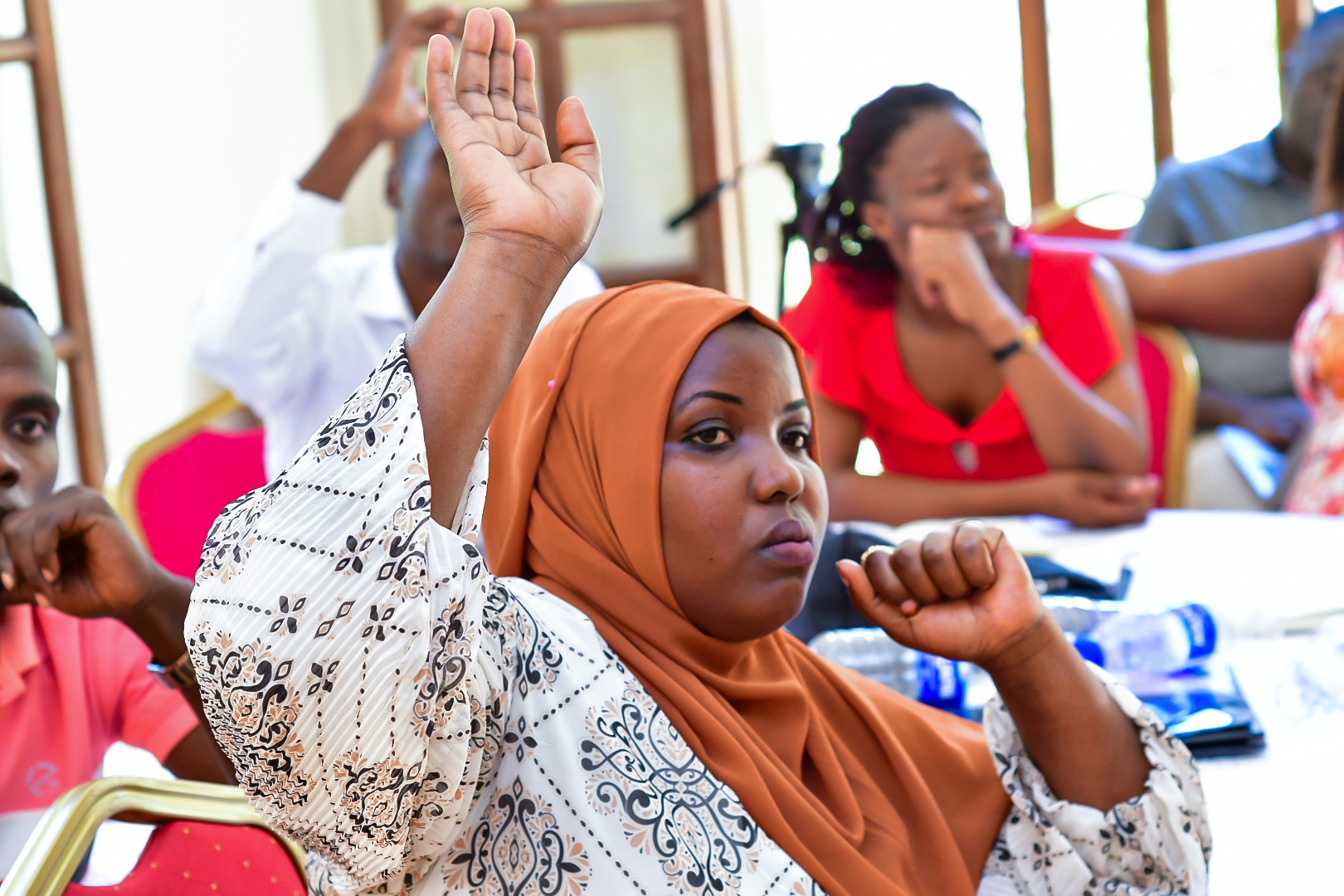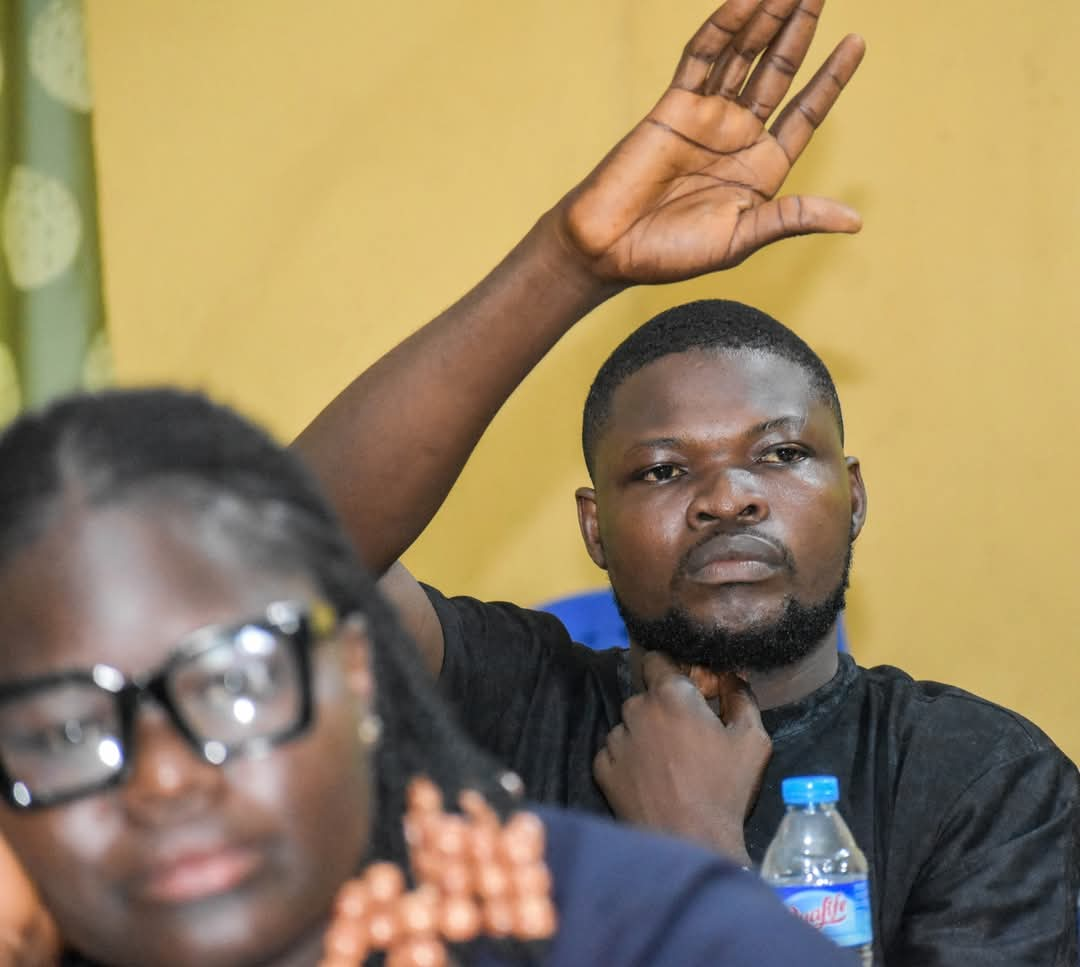Bridging divides through openness and respect: A Georgia-Armenia exchange
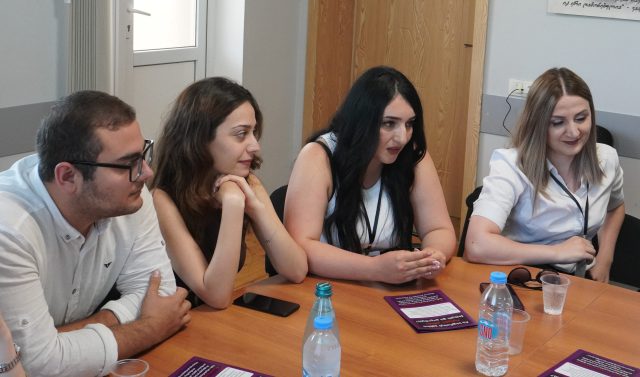
Aidar Sultanov, NIMD’s Democracy Education Intern, recently joined an exchange trip between neighbouring Democracy Schools: The Armenian Multiparty Democracy Academy and our partner EECMD’s Gori and Telavi Democracy Schools. Below, he shares his experience.
At NIMD, we take great pride in our ability to bring people together across various divides. And our Democracy Academy in Armenia is no exception, uniting young politicians and civic women and men from different backgrounds, ideologies and regions.
In June, these participants had the chance to bridge yet another divide, as they visited neighbouring Georgia. There, they would take part in an exchange trip with the Gori and Telavi Democracy Schools and meet other passionate young change makers.
I was excited to join them. As an intern for Democracy Education at NIMD, I have been studying the ins and outs of our Democracy Schools. I was eager to meet some of the participants and see first-hand what it means to be part of this unifying exchange.
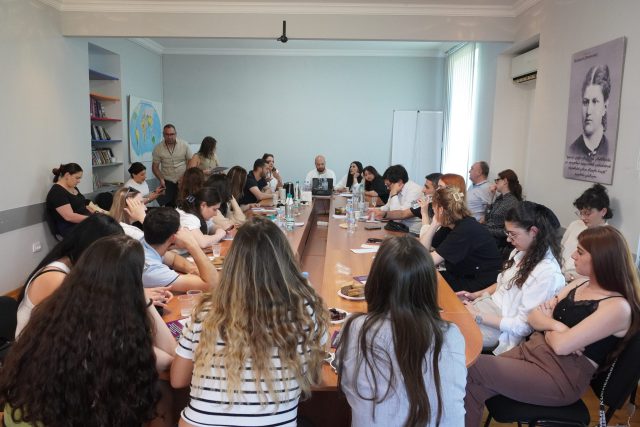
Learning from experience
As I first met with the Armenian participants, I could feel their excitement. These young people were fairly new to the concept of Democracy Schools, as the Armenian Multiparty Democracy Academy (ARMDA) was only recently established.
Launched just last April, ARMDA was developed and implemented through a partnership between NIMD’s office Armenia and the OxYGen Foundation. So the participants had much to gain from their trip. They seemed eager to meet the Georgian participants, who could share their experience and tips from being part of an established Democracy School.
In fact, some of the alumni they would meet took part in the Georgian Democracy School over a decade ago, when it was first set up by NIMD’s office in Georgia – now the Eastern European Centre for Multiparty Democracy (EECMD).
An opportunity for inspiration and collaboration
It was clear from the start that the exchange was a valuable opportunity to explore ideas and build connections. The participants shared regional challenges, learned from one another and established a region-wide network of young people with the skills and knowledge to contribute to change in their own country.
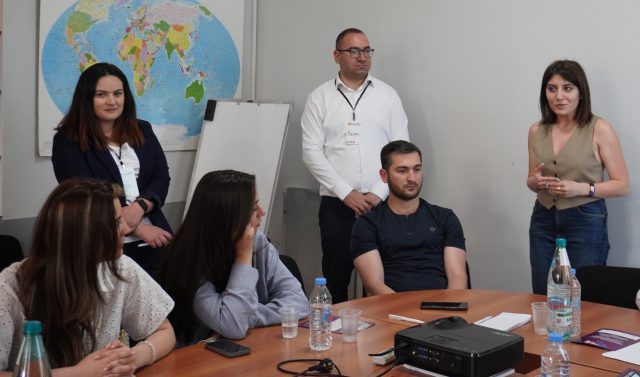
This was my first time seeing a Democracy School in action and I was impressed by the informal, personal nature of the dialogue, where everyone felt comfortable sharing their opinion.
It struck me that, although these participants often held different views, they approached the discussions with a remarkable openness. I knew that NIMD Democracy Schools promote tolerance and respect, but seeing it in action was quite different. Despite their differing opinions, the participants prioritized the importance of hearing all voices.
They discussed regional challenges such as polarization of the media, foreign policies and relations between their countries. Together, they shared their perspectives on their own country’s democratic systems and came up with ideas on how they, as future leaders, could deepen their democracies.
Building a deeper connection
Between the dialogue sessions, the participants had the chance to engage in more personal conversations and build connections.
During one of these discussions, I had the pleasure of meeting Tsovinar Kostanyan, Vice-President and founding member of “HASAK” Party, a Party for Social Justice. She shared that she sees her party as a platform to amplify voices and drive meaningful change.
Tsovinar was very excited to be part of the exchange, and was already thinking about the insights she could take back to Armenia with her. For her, the Georgian Democracy School, with its long history and engaged alumni, represented real inspiration. She hopes to also continue to nurture her ties and connections with other alumni across ideological divides, as she continues her commitment to politics in the years ahead.
Countering polarization
Tsovinar also shared her excitement at being part of the Democracy Academy in Armenia. Since the programme started, she has felt a new sense of motivation in her political work, and has gained valuable new knowledge. She mentioned how ARMDA has deepened her understanding of the kinds of initiative her party can implement to better connect with their constituents. She’s also learned new strategies and tools for advancing social justice and improving her constituent’s rights.
But, for her, the most important thing she has learned is how to engage in dialogue. Through both ARMDA and the exchange, she’s been inspired by the spirit of openness and respect. This dialogue has helped her to improve her understanding and acceptance of the views and positions of other political and civic actors in her country.
In the current political climate in Armenia, which she sees as marked by political polarization, dialogue across divides is a beacon of hope. For Tsovinar, initiatives like ARMDA hold the solution – creating more unity, tolerance and acceptance, and helping to move towards a less polarized political environment.
The parents of Armenian Democracy
Talking to Tsovinar about her hope for the future made me reflect on the huge responsibility that lies on the shoulders of the young participants of ARMDA.
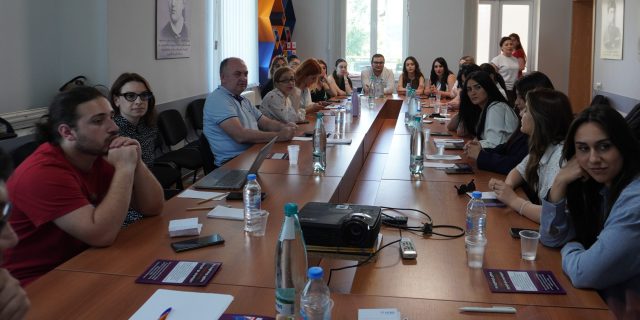
It brought to mind a moment during the exchange at the EECMD office: The participants were looking at portraits of the founders of the Georgian Republic, who played a crucial role in establishing the country’s democracy.
An Armenian participant noted his neighbouring country’s solid and long-term commitment to democratic reforms: “They are the parents of Georgian democracy. But we are the parents of Armenian democracy.”
Indeed, as Armenia – which transformed into a representative parliamentary democratic republic in 2018 – takes strides towards a more robust, unified and inclusive democracy, I am so proud to be supporting the leaders and future leaders who will shape its future.

